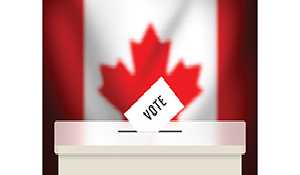CFIB calls for CEBA repayment deadline extension
November 15, 2023, 9:48 am
Ryan Kiedrowski, Local Journalism Initiative Reporter


A program designed to help small businesses and not-for-profits during the COVID-19 pandemic by providing loans has the deadline for repayment including partial loan forgiveness drawing near, and the Canadian Federation of Independent Business says businesses will be hurt if the deadline is not extended.
Launched back in 2020, the Canada Emergency Business Account offered hope in desperate times in the form of loans of up to $60,000 for those eligible.
If that loan is repaid by Jan. 18, 2024, the program offered a loan forgiveness of 33 per cent ($20,000).
At the start of the program, CEBA loans topped out at $40,000, but on Dec. 4, 2020, the maximum was increased and those who already had the primary loan could apply for the CEBA expansion.
While that plan looked good on paper, post-pandemic reality has many of those loan recipients looking ahead to the New Year with trepidation.
“That’s what has many business owners stressed right now,” said Brianna Solberg, Provincial Director of the Canadian Federation of Independent Businesses for Manitoba, Saskatchewan and the North.
“Obviously, CFIB has not been alone been calling for an extension and recently the federal government announced only an 18-day extension from Dec. 31 to Jan. 18, 2024.
Business owners found that overwhelmingly unhelpful—18 days isn’t going to make much of a difference for those who are struggling to pull together the capital or secure the financing.”
Back on Sept. 14, the federal government announced that any CEBA loans left unpaid by that Jan. 18, 2024 deadline will automatically become a three-year term loan at five per cent interest, plus access to the forgivable portion will be lost, so if businesses can’t repay $40,000 of the loan by Jan. 18, the entire $60,000 must be repaid.
Businesses who apply to refinance their CEBA loan (again, before Jan. 18) will see the deadline to repay bumped to March 28, 2024 and will still be able to keep that forgivable portion.
Key issue missed in announcement
The final deadline for repayment of the entire CEBA loan was extended one year by the federal government to Dec. 31, 2026, but the CFIB called the Sept. 14 announcement a “big disappointment,” explaining that it missed the most important issue for many small businesses—extending the deadline to keep the forgivable portion.
“I think the message is loud and clear from business owners still that they would like a further extension to the deadline,” Solberg said, adding that the CFIB is calling for an extension of the forgivable portion to December of next year.
“It’s an extension, but still if you don’t pay it back by Jan. 18, you don’t get that $20,000.”
With rising interests rates, inflation and the cost of basically everything going up, it’s a tough go for small and medium-sized businesses. Solberg noted that a large percentage of those owners will simply not meet the deadline as it stands.
“Business owners are basically struggling to keep their heads above water at this point and all the while they have to pay back this debt, it’s definitely not going to be easy,” she said.
“We have two-thirds of the business owners—65 per cent—expecting to have difficulties meeting that Jan. 18 deadline. That could force some businesses to simply close their doors. If they can’t meet that deadline, they lose the $20,000 (loan forgiveness) that they banked on. That could be the final nail in the coffin.”
In Saskatchewan, around 29,000 businesses took out CEBA loans, amounting to over $1.6 billion.
“It’s a huge chunk of the economy, and that’s a lot of businesses,” Solberg said.
According to numbers from the Government of Canada, a total of 878,271 businesses were approved to receive CEBA loans with 571,851 approved for expansions. The total approved through these loans and expansions totalled $49.2 billion.
Local business support needed now more than ever
Arts, recreation and hospitality sectors have been hardest hit according to Solberg, adding that those industries were viewed as “discretionary spending” by consumers.
They were also the slowest sectors to return from the COVID crunch, with people spending less on average even today.
“During COVID, it was great to see the communities rally behind local businesses and there were ‘shop local’ campaigns,” Solberg said.
“Now, I think people maybe have a misconception that the greatest deals they can find are at the big box stores or online. They’ve shifted their purchasing behaviour that way.”
An important consideration for supporting local business is how the economy in a community is affected. A CFIB report found that 66 cents of every dollar spent at a local business remains in that community—compared to 11 cents that remains in town from each dollar spent at a big box store.
“You can find great deals at your local businesses as well,” Solberg said.
The CEBA loan program saw many changes after its introduction with several businesses who applied deemed ineligible at first. This left many business owners scratching their heads, unsure where to turn.
“They don’t have huge Accounting or HR departments to help them with this,” Solberg said “The government is definitely not making it easy for small business owners.”



































